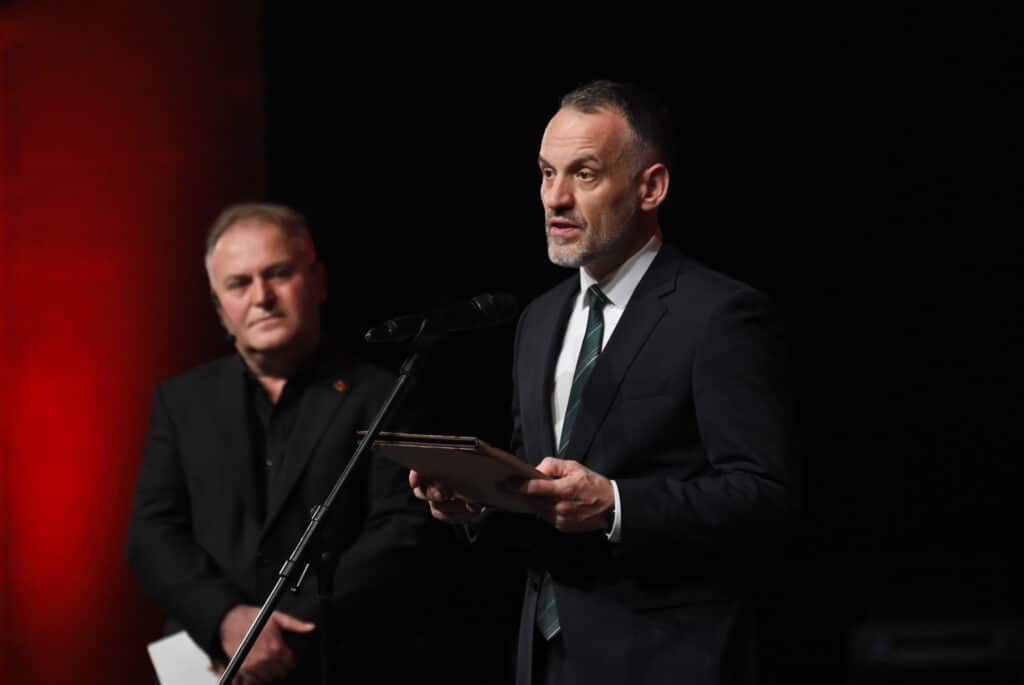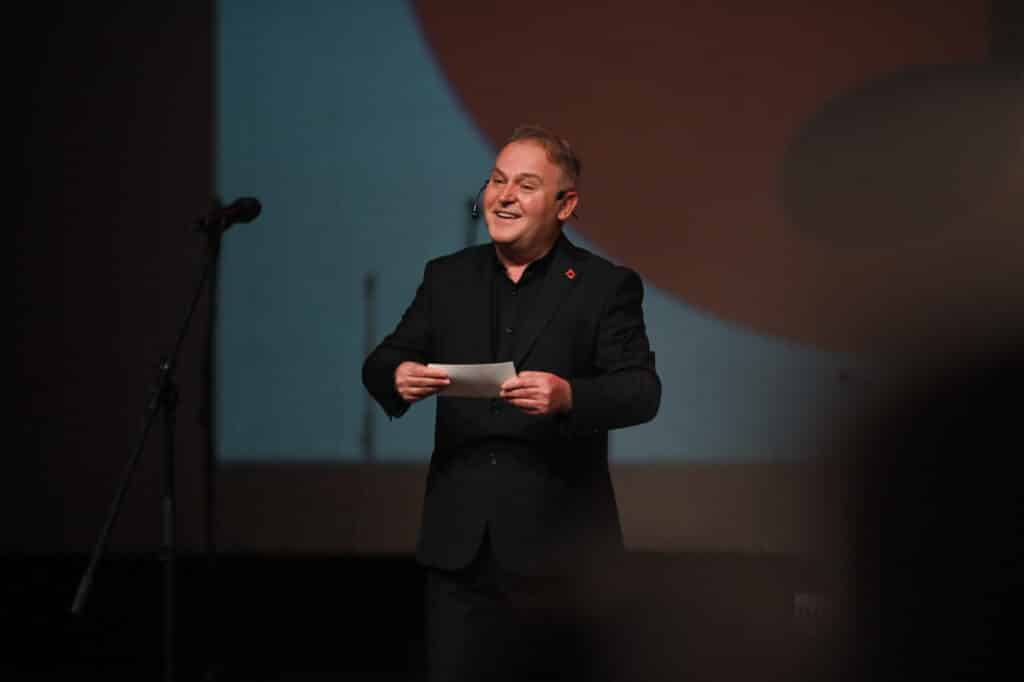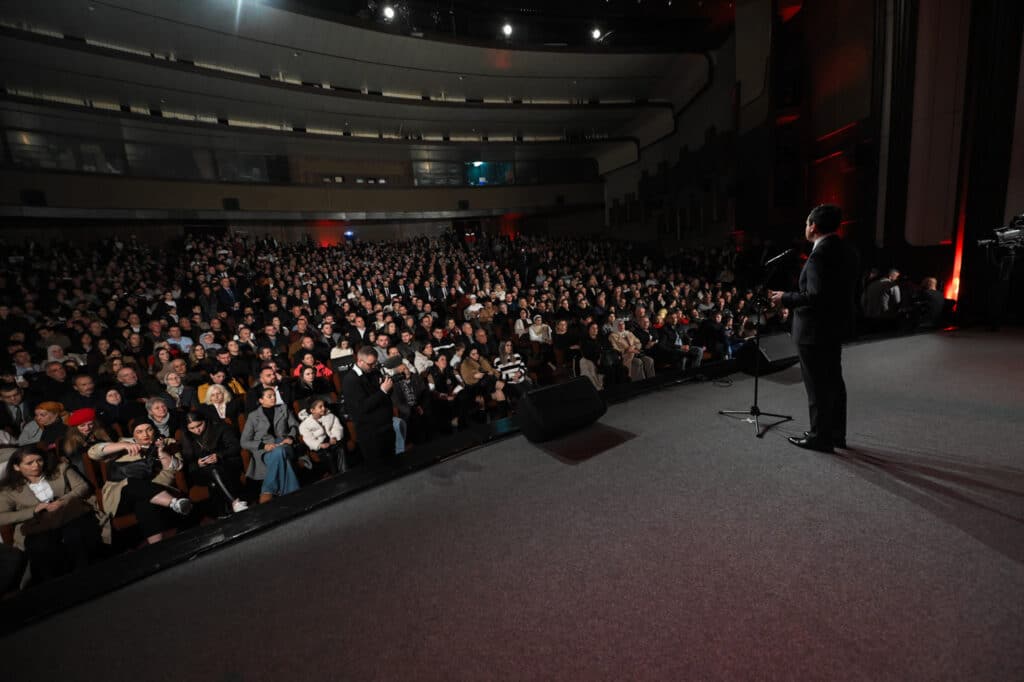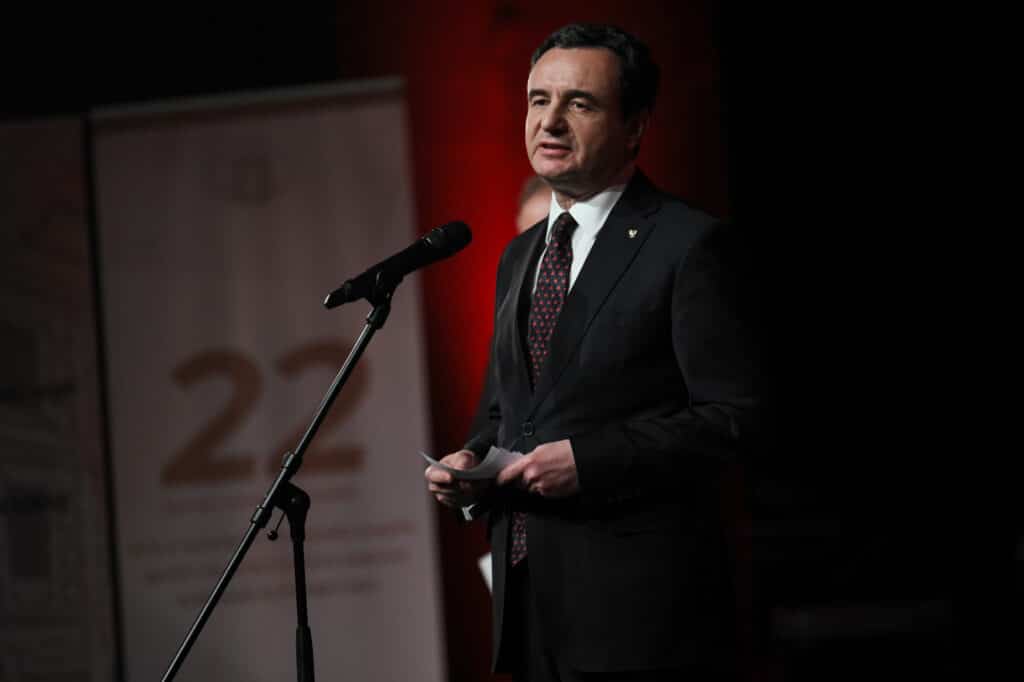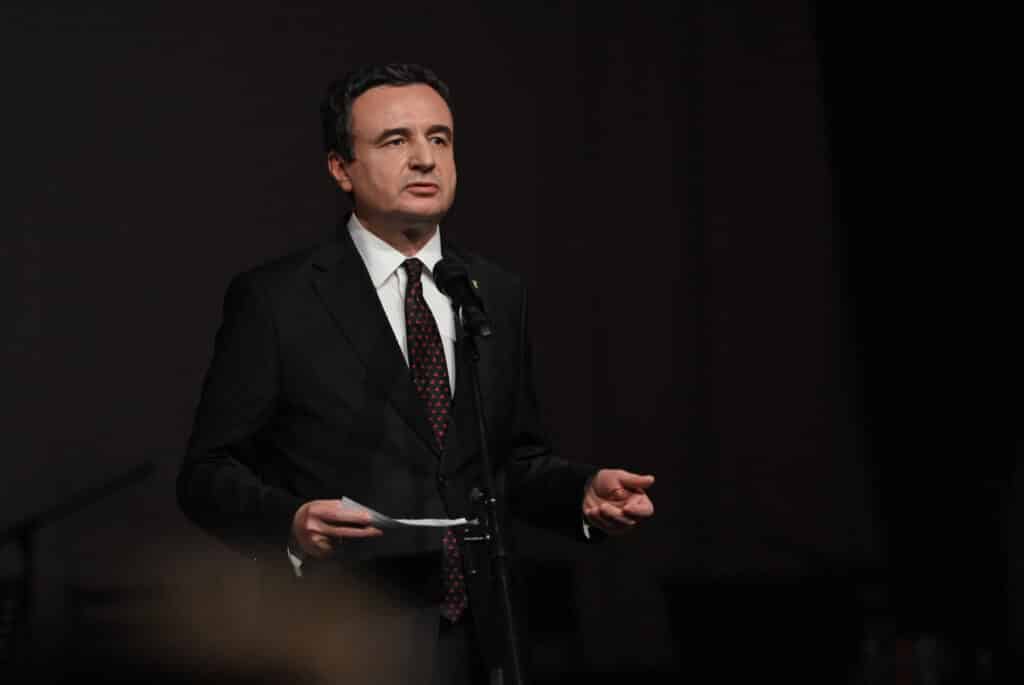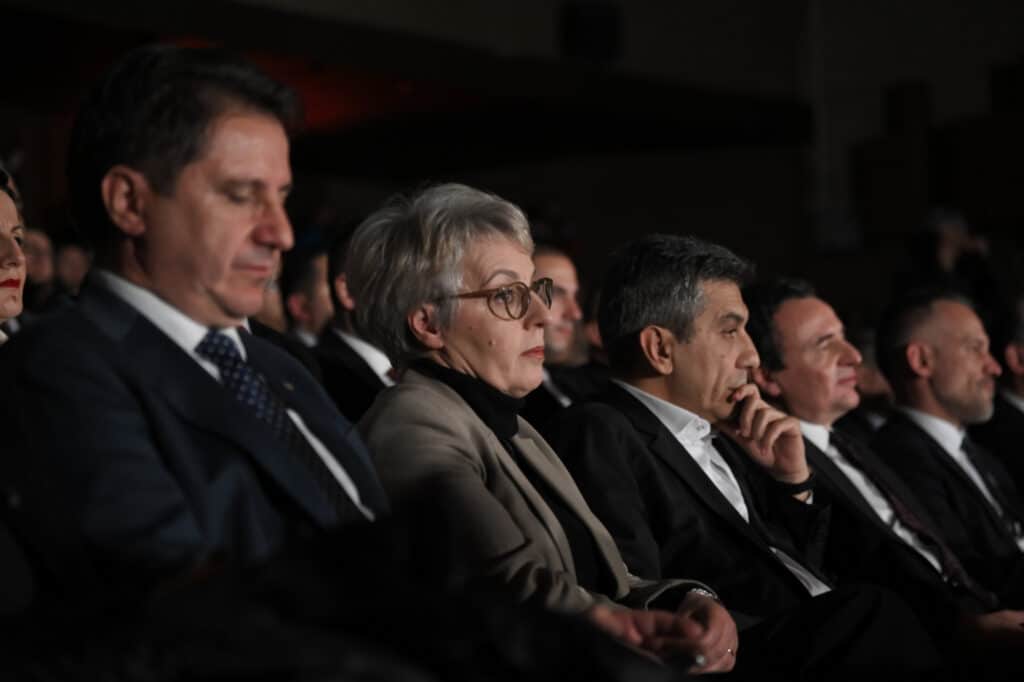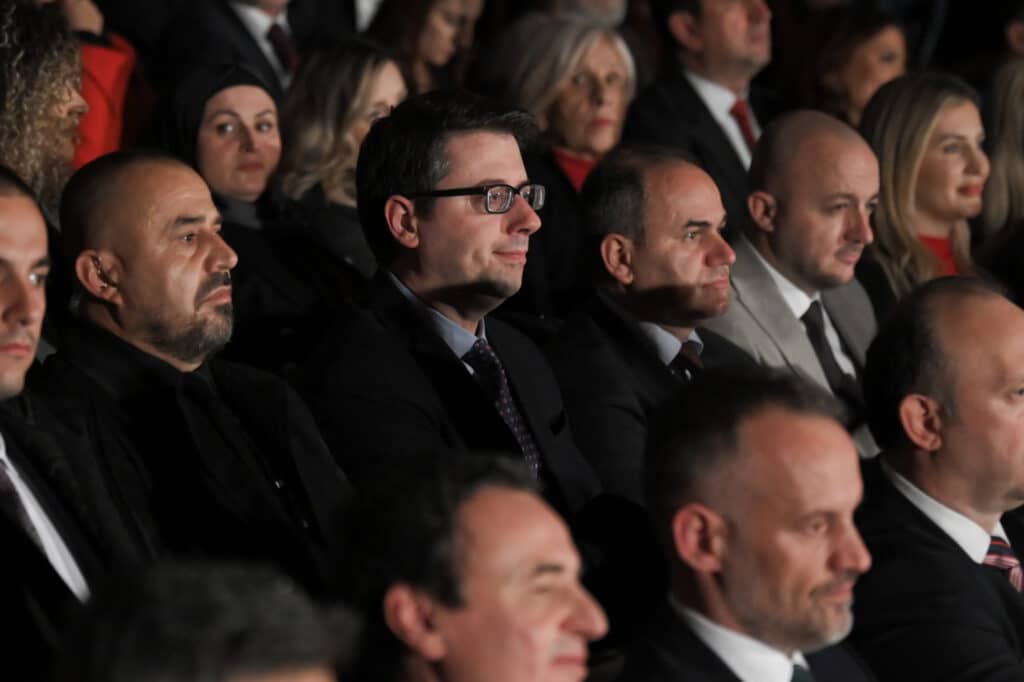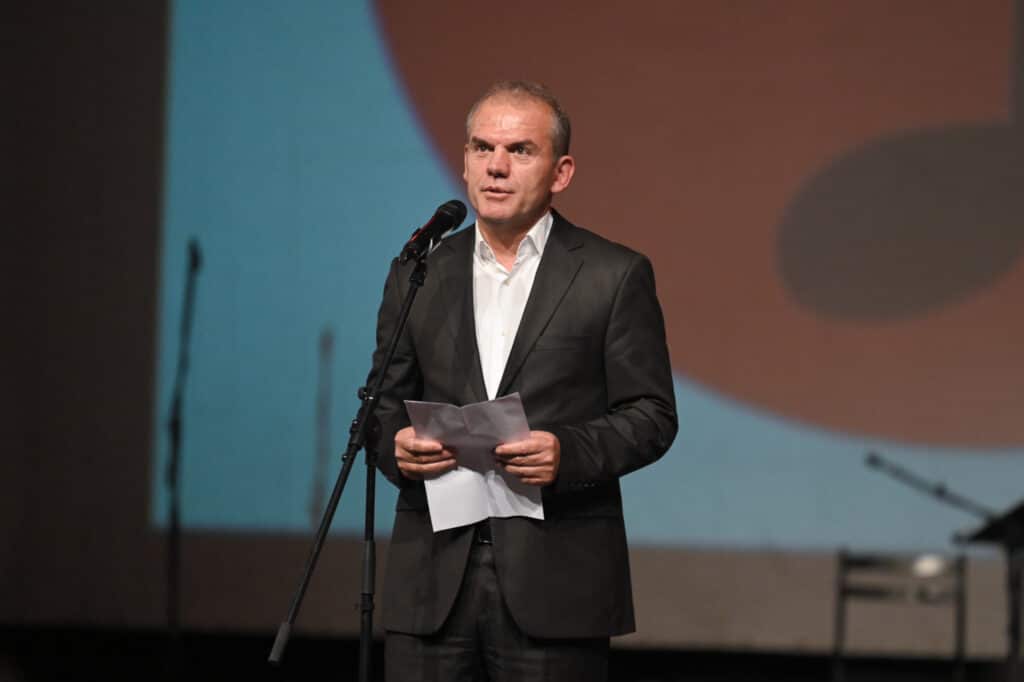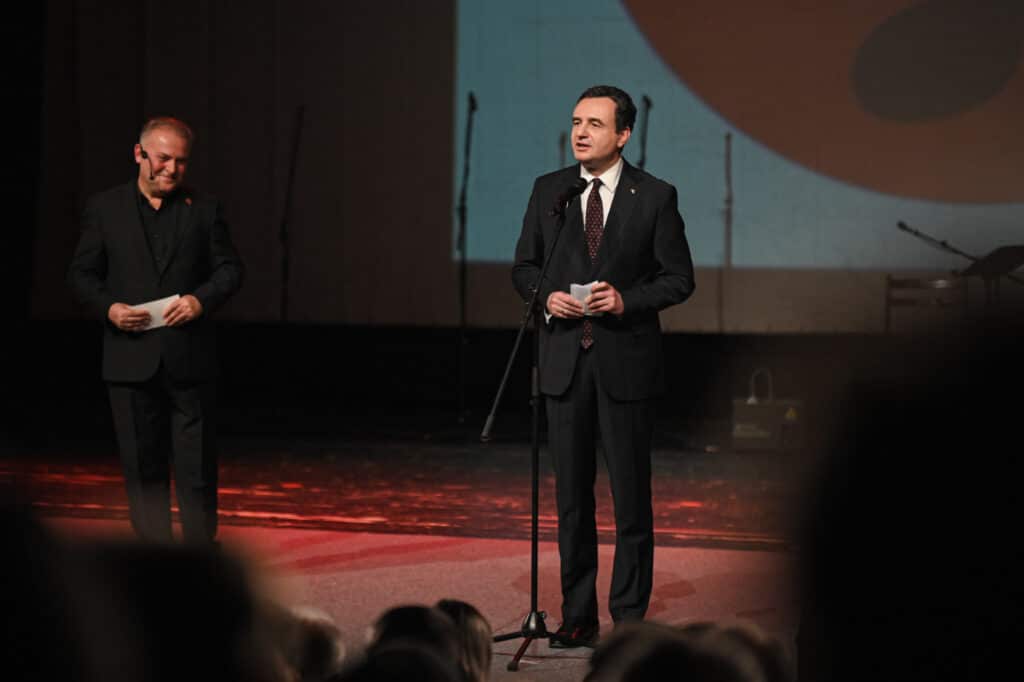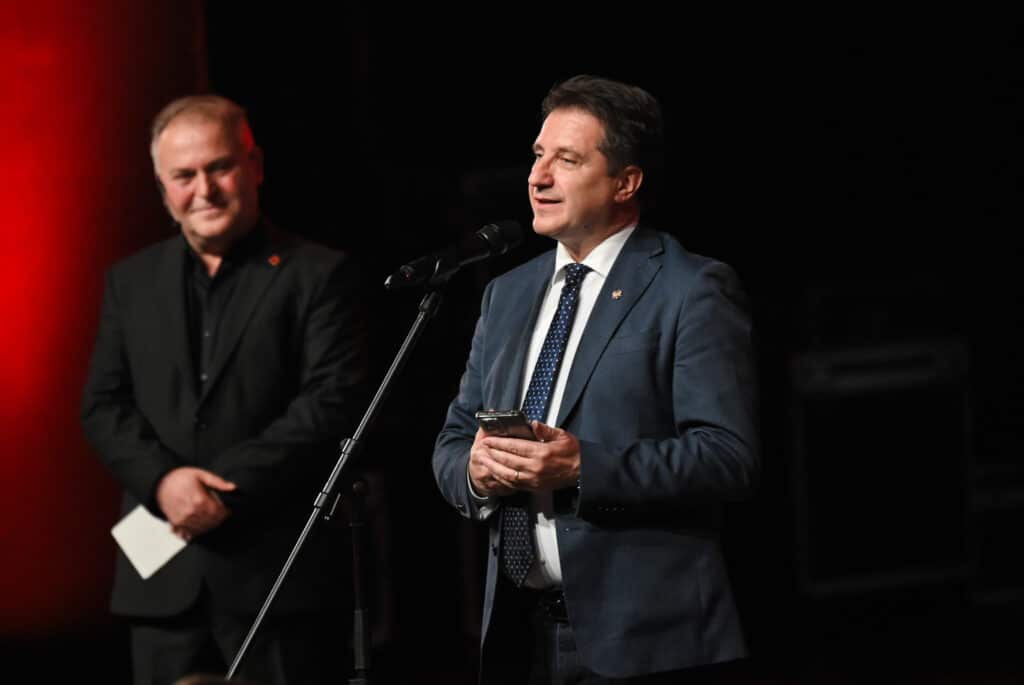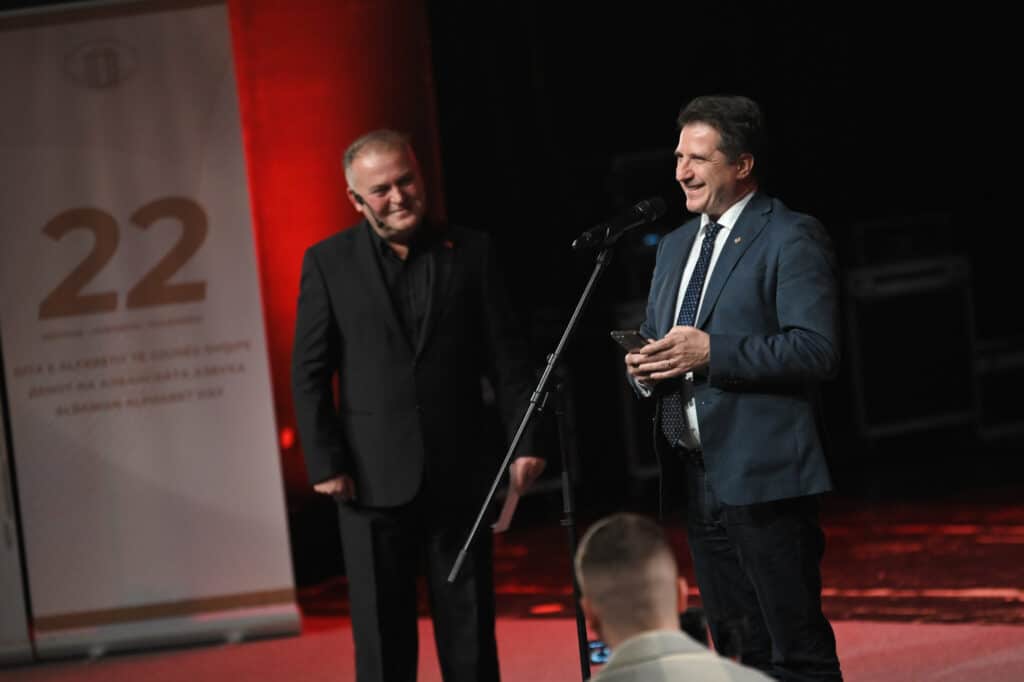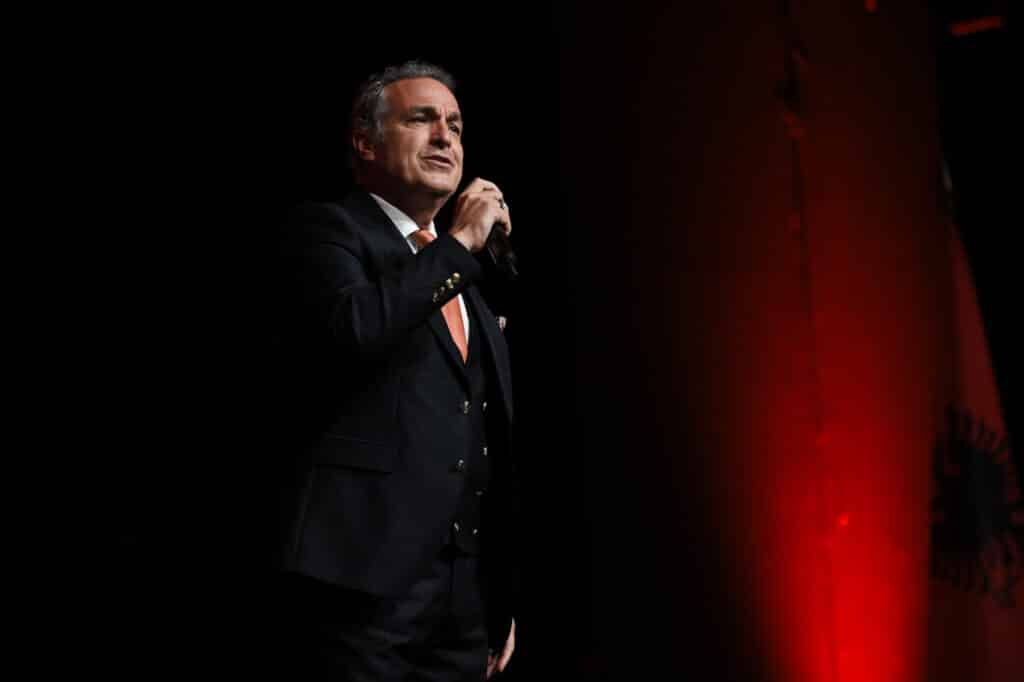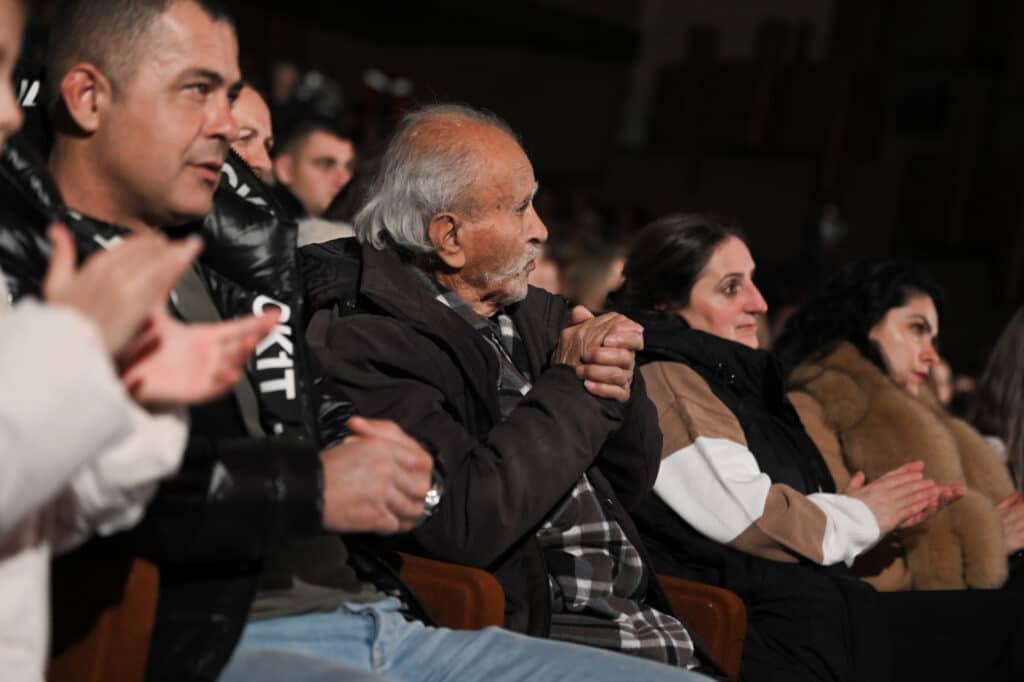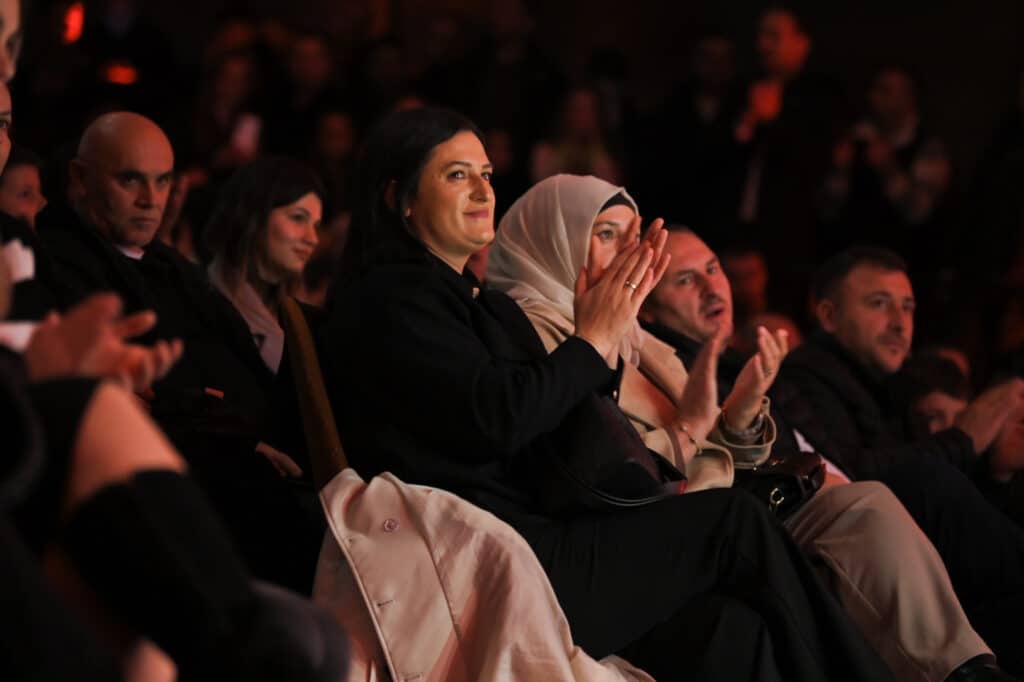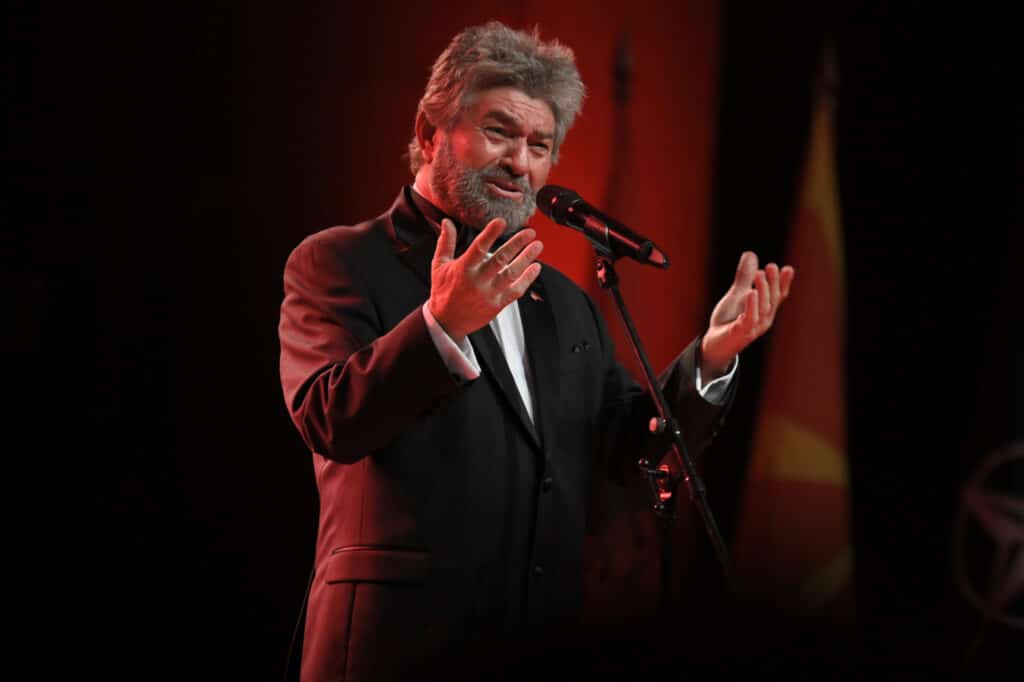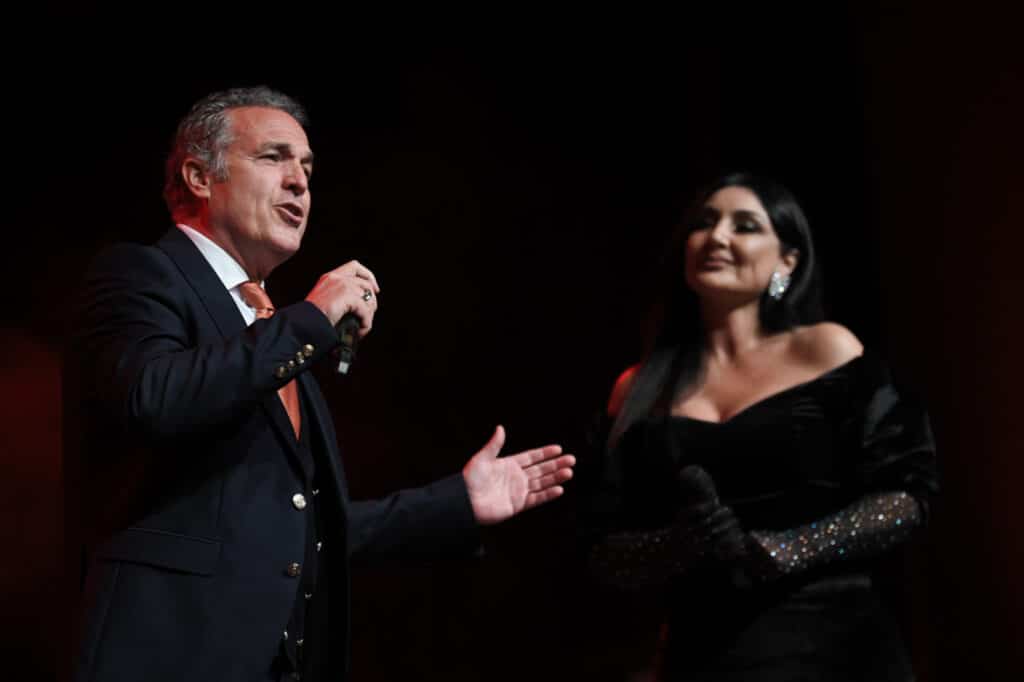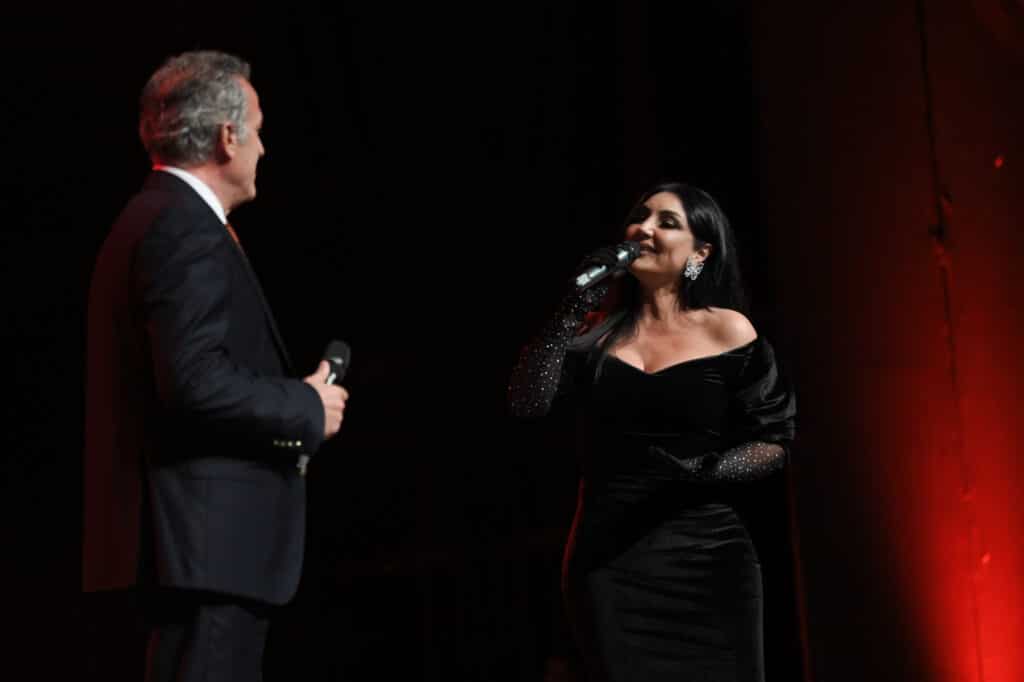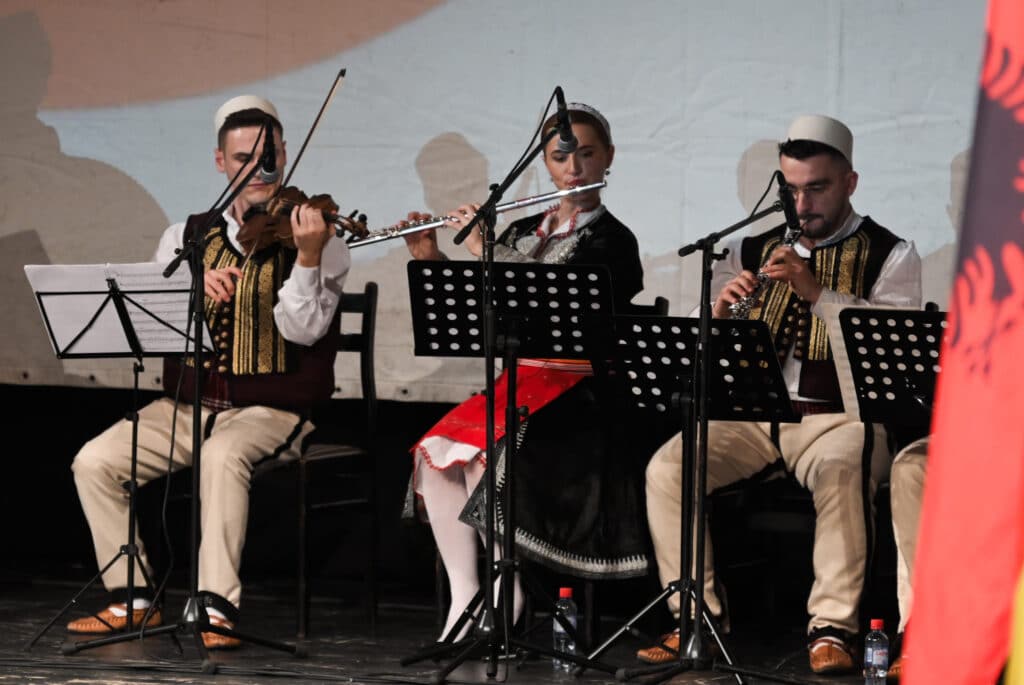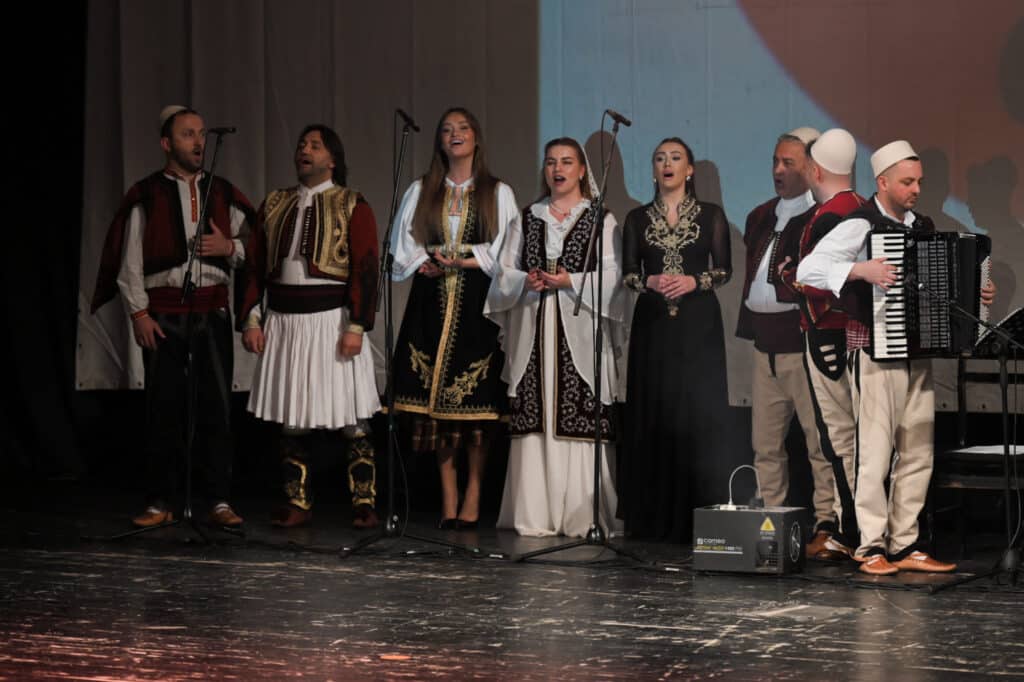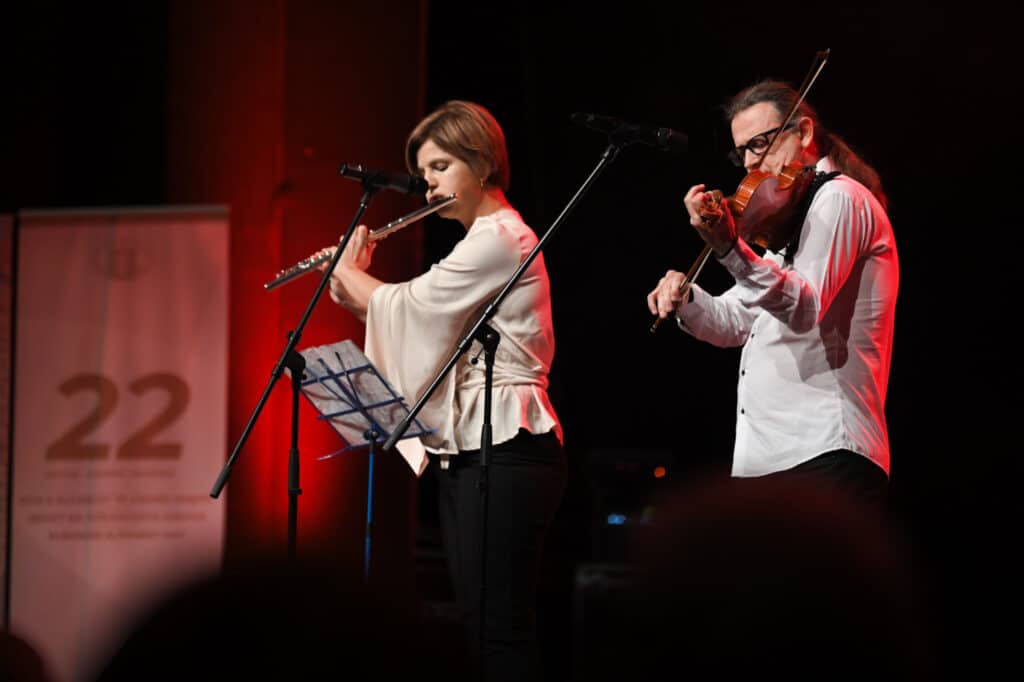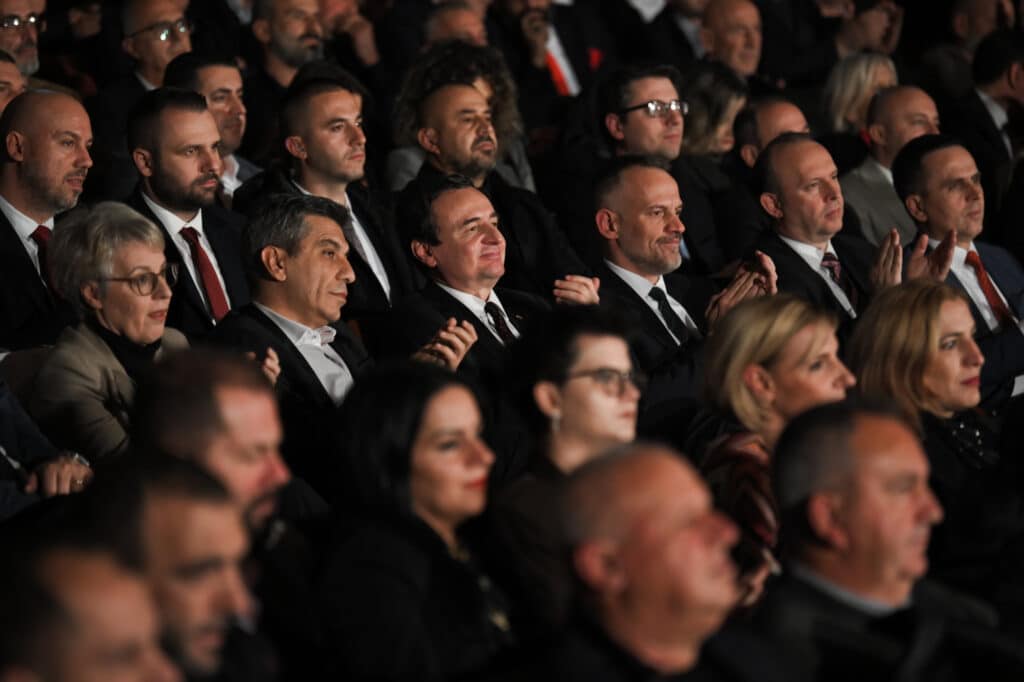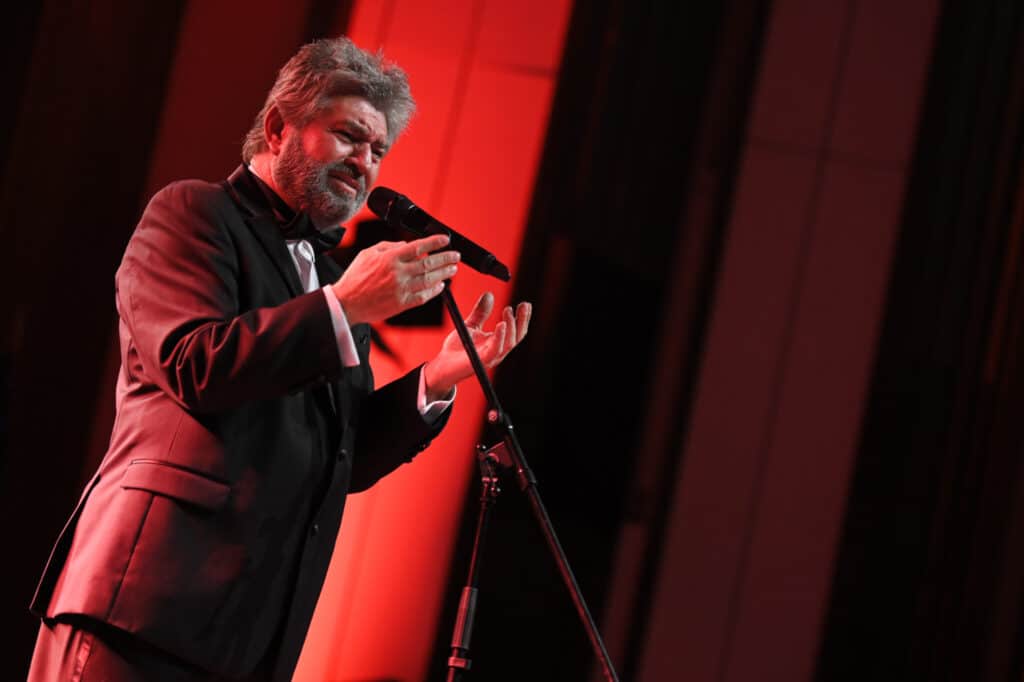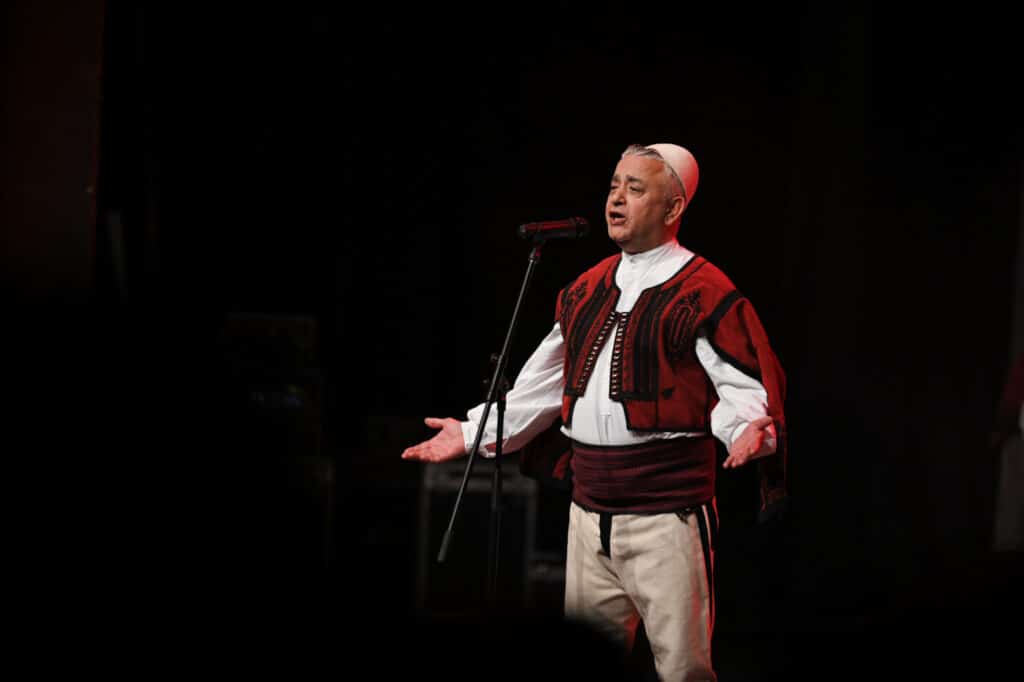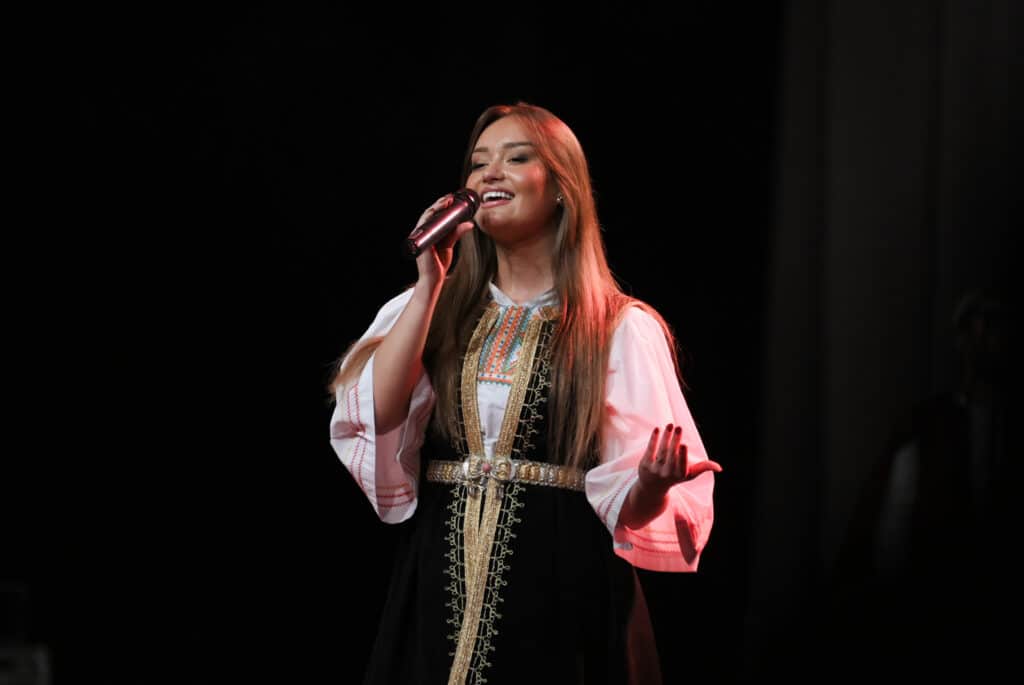Manastir/Bitola, North Macedonia, 22 November 2025
The Acting Prime Minister of the Republic of Kosovo, Albin Kurti, took part in marking the 117th anniversary of the Alphabet Day of the Albanian Language, in an event organized by the government of North Macedonia in Manastir (Bitola), where the historic 1908 congress was held.
Full speech of Prime Minister Kurti:
Honourable Speaker of the Assembly of the Republic of North Macedonia, Mr. Afrim Gashi,
Honourable Deputy Prime Minister of the Republic of North Macedonia, Mr. Arben Fetai,
Honourable Deputy Prime Minister and Minister of Foreign Affairs and Diaspora of the Republic of Kosovo, Ms. Donika Gërvalla,
Honourable Mayors: of the Municipality of Çair, Mr. Izet Mexhiti; of the Municipality of Tetova, Mr. Bilall Kasami; of the Municipality of Struga, Mr. Mendi Qyra; and of the Municipality of Presheva, Ms. Ardita Sinani,
Honourable Mayor of the Municipality of Hora e Arbëreshëve, Mr. Rosario Petta,
Honourable Mr. Lulzim Jashari, son of the Kosovo Liberation Army’s Chief Commander, Adem Jashari,
Honourable Ambassador of the Republic of Kosovo to North Macedonia, Mr. Florian Qehaja,
Honourable members of parliament, ministers, deputy ministers, state officials of the Republic of North Macedonia, the Republic of Kosovo, the Republic of Albania, and from all places where Albanians live, who have brought us together on this extraordinary evening — thank you all for this warm hospitality,
The speech I am reading today is written in one of the two alphabets that the Congress of Manastir approved for use by all Albanians 117 years ago. The alphabet of the “Bashkimi” Society appears so simple and functional, yet at the same time it is profoundly sublime. We learn it in our early childhood, turning the sounds of our mother tongue into letters, and we never part from it, wherever we may be, because even the most widespread languages in the world, throughout the history of humanity, are written with the same letters — just like our beautiful Albanian language.
Its sublimity lies in the fact that the emergence, or re-emergence, of our nation into the modern world — its appearance as a distinct nation among other Balkan and European nations — had to happen through the alphabet. Naum Veqilharxhi, one of the initiators of our National Renaissance, was troubled by why our people had lagged so far behind in development compared to the more advanced peoples of the time. He believed that the key to beginning the great effort against backwardness — not only material but also intellectual and spiritual — was the cultivation of the mother tongue. And indeed, that is what they called it: the cultivation of the mother tongue. On the other hand, we have the beautiful Albanian word arsimi, related to arë (field), the transformation of land into a field which, when sown, yields the fruits that sustain us. Thus, it is no coincidence that he created a unique alphabet for the Albanian language, one that would not correspond to the Latin, Greek, or Cyrillic alphabets used by the peoples surrounding the Albanians. The same concern was shared by the patriots who founded the Society for the Publication of Albanian Letters, and who drafted the Istanbul Alphabet. The introduction to this society’s “Canon” begins with the sentence, I quote: “All enlightened and civilized nations have been enlightened and civilized through books in their own language.” End of quote. And the word book undoubtedly reminds us of Gjon Buzuku’s Meshari, the oldest book in the Albanian language, published in 1555.
From the Congress of Manastir in 1908 to the Orthography Congress of 1972, the efforts to standardize Albanian writing were made not simply for practical reasons, but for another important reason: despite political, regional, and ideological divisions, Albanians needed to unite through language. The simultaneous cultivation of the written language would be — and still is — the essential condition to withstand and overcome the effects of other divisions. For the nation does not lie in the past; it lies in the present and the future. Besides being a population, it is also a spirit that transforms that population into a community. Our language unites us naturally; its unified writing unites us politically.
Therefore, every year we commemorate 22 November as Alphabet Day; therefore, Manastir joins Prizren and Vlora as three important sites of our history. Commemorating within the same week both the Congress of Manastir and the Assembly of Vlora connects language and culture with the idea of freedom and self-determination. Both dates carry with them memory, legacy, and the will to perpetuate the unity and development of Albanians.
The standardized alphabet of Manastir is the crown of the evolution of Albanian writing across many centuries. Those who wrote in Albanian used signs shared with different alphabets, but each alphabet used to write Albanian could be considered an Albanian alphabet — because no other alphabet was sufficient to represent all the sounds (phonemes) of our very rich language. Every alphabet had to be Albanianized, by combining letters or inventing new signs. Thus, the alphabet they used was identical to no other. It was ours.
Even though they had contact with different writing systems — hieroglyphic, diagrammatic, or abjad (using only consonants, without vowels, such as Arabic, Hebrew, etc.) — they aligned themselves with a universal good, and with what was most suitable for us: the phonetic writing system, in which our language is particularly rich.
In the early 20th century, enlightened minds — religious and secular — took this writing tradition as an inheritance to develop, and have passed it on to us as such. With phonetic, lexical, grammatical richness, and eventually with standardized letters, the language gained ease of expression in writing, and the Albanian being gained ease of expression through the written language. Therefore, the proper name “Congress of Manastir” or “Alphabet Congress” remains as enduring as writing itself. Because: scripta manent!(What is written remains!) Albanian remains! Albanian being remains!
And in the great triangle of the modern Albanian era — Prizren, Manastir, Vlora — we are today in its most delicate, most sensitive corner. The great figures of our history — poets and ideologues — knew that we can and must unite first in thought. And thought becomes clear through language. And our language was rich in phoneme. The Congress of Manastir is therefore the most special among great events. Our great predecessors established the language not with an academy, but with a Congress. I ask that in our shared and intimate remembrance of this event, we always place at the forefront the great names: Gjergj Fishta and Mithat Frashëri, Mjeda and Gurakuqi, Parashqevi Qiriazi and Hilë Mosi, Avrami and Zavalani, Bajo Topulli and Sotir Peci, Shahin Kolonja and Mihal Grameno, Gligor Cilka and Sami Pojani, and others — warriors, poets, and warrior-poets, in language.
Thank you for your hospitality and attention, and happy 117th anniversary of the Alphabet Congress!
